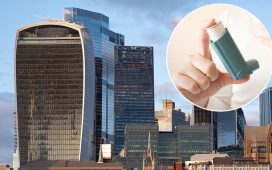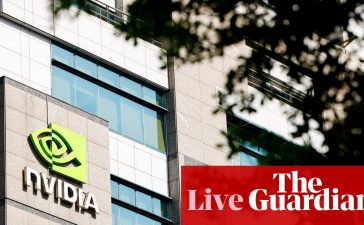BP (BP.) on Tuesday said underlying replacement profit more than doubled in 2022 and was higher in the fourth quarter, in line with increasing natural gas and oil sales from rising prices.
The London-based oil major said 2022 underlying replacement cost profit was $27.65 billion (£23 billion), multiplying from $12.82 billion in 2021, or to $46.04 billion from $22.34 billion before interest and tax.
This was underpinned by rising underlying pretax RC profit in gas and low carbon energy to $16.06 billion from $7.53 billion, and to $20.22 billion from $10.29 billion in oil production and operations.
In the three months that ended December 31, underlying pretax RC profit was up 32% to $9.32 billion from $7.05 billion a year earlier; for gas and lower carbon energy, it rose 43% to $3.15 billion from $2.21 billion; and for oil production and operations, it was up 10% to $4.43 billion from $4.02 billion.
Across the full year, BP’s performance soared, owing to rising natural gas and oil prices across the year.
For all of 2022, sales and other operating revenue was $241.39 billion, up 53% from $157.74 billion in 2021, while pretax profit ticked down to $18.04 billion from $18.08 billion, due to a net impairment and losses on sale of businesses and fixed asset, as well as higher purchases and other expenses.
The China Swing Factor
Looking ahead, BP said it expects oil prices to be supported by recovering demand from China. For gas prices, BP said the outlook depends on the pace of Chinese demand recovery and weather in the Northern Hemisphere
BP also declared a quarterly dividend of 6.61 US cents per share, up 21% from 5.46 cents, taking its 2022 total dividend to 24.082 cents, rising 11% from 21.630 cents.
Fourth-quarter underlying pretax RC profit was down 32% from $13.75 billion in the third quarter. BP said fourth-quarter profit was “impacted by a below-average gas marketing and trading result, after the exceptional result in the third quarter, lower oil and gas realizations, a higher level of refinery turnaround and maintenance activity, and lower marketing margins and seasonally lower volumes.”
But this did not undermine overall 2022 performance, however, as soaring hydrocarbon prices benefited the oil major.
Total hydrocarbons average price was around $56.34 per barrel of oil equivalent in 2022, up 67% from $33.75 in 2021. Liquids rose 41% to $89.86 per barrel from $63.60, while natural gas was up to $8.91 per thousand cubic feet from $5.11.
Windfall Taxes
Coming after Shell’s bumper results last week, BP’s record profits will intensify demands for the government to make the windfall tax regime more punitive for oil producers.
BP said it paid $1.83 billion in windfall tax in 2022, as part of the UK government’s energy profits levy, a measure implemented to address rising consumer energy bills amid the cost of living crisis. Last week Shell (SHEL) said it had paid $134 million in windfall taxes on $40 billion of annual profit. The tax was brought in during May 2022 by then chancellor Rishi Sunak.
John Moore, senior investment manager at RBC Brewin Dolphin, said: “It’s fair to say that following the period covered by these results the oil price has weakened, while BP is also emphasising its investment in renewables and its commitment to changing how the company operates. But, even allowing for these factors, there will inevitably be a backlash against today’s results in the current climate. They will only add to calls for political intervention at some point in the near future.”
Looking ahead, BP said, during the first quarter of 2023, it expects oil prices to remain supported by recovering Chinese demand and ongoing uncertainty around the level of Russian exports and low inventory levels.
This is alongside industry refining margins remaining elevated due to sanctions against Russian crude and product by the international community, in response to the war in Ukraine.
BP said global gas prices will remain dependent on weather in the northern hemisphere and the pace of Chinese demand recovery.
Across 2023, BP expects both reported and underlying upstream production to be broadly flat compared with 2022.
“Throughout 2022, BP continued to focus on delivery of our ‘integrated energy company’ strategy. We are helping provide the energy the world needs today and – at the same time – investing with discipline into our transition and the energy transition – as demonstrated by the Archaea Energy acquisition,” said Chief Executive Officer Bernard Looney, referring to acquisition of US renewable natural gas provider Archaea Energy Inc for $3.3 billion in December.
“We are strengthening BP, with our strongest upstream plant reliability on record and our lowest production costs in 16 years, helping to generate strong returns and reducing debt for the 11th quarter in a row. Importantly, we are delivering for our shareholders – with buybacks and a growing dividend.”










